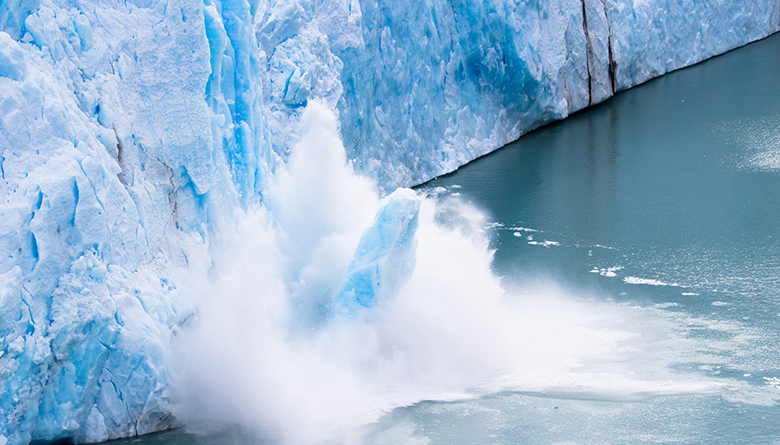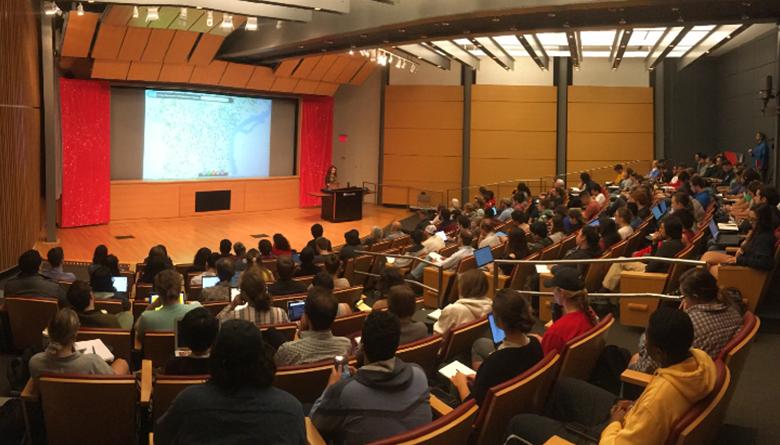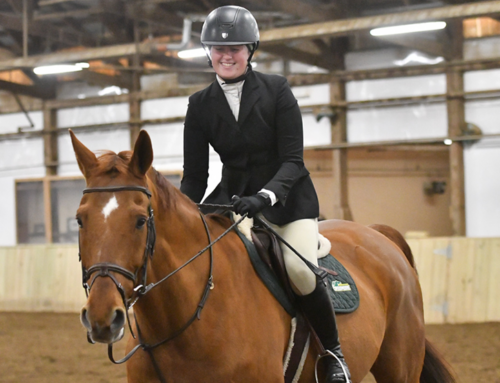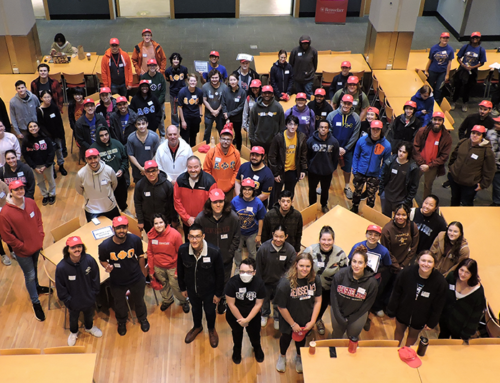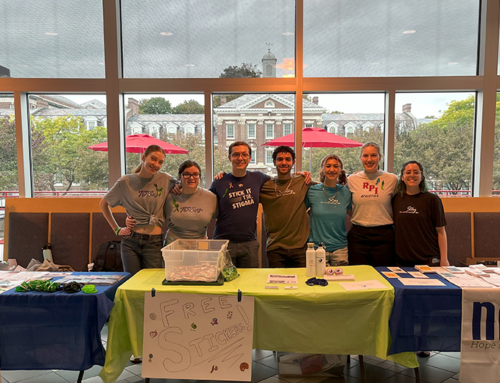By Brandon Costelloe-Kuehn, Lecturer in Science and Technology Studies, and Daniel Chapman Lander, Lecturer in Civil and Environmental Engineering, at Rensselaer Polytechnic Institute
Climate change is real and humans are driving it. In perhaps the greatest injustice in our species’ history, the humans that have contributed the least to climate change (including future generations) are the most heavily impacted. Especially for the most vulnerable populations on this planet, every fraction of a degree of warming will impact the coming years and — given the timeline that scientists have given us, about a decade for “unprecedented and urgent action” to have a shot at a relatively livable future and avoid catastrophic tipping points — every day matters.
Climate change is heavy and complex. It’s easy to get distracted and turn away. But more and more of us are educating ourselves and others about this existential issue. On the Rensselaer Polytechnic Institute campus, interdisciplinary conversations take place on a biweekly basis to highlight a wide array of perspectives that illuminate the diverse ways that differently positioned people can pitch in and help tackle climate change while making a living, building connections with other people who care, and maybe even learning to love the work.
Free and open to the public, the speaker series, Engineering the Anthropocene, focuses on our radically changing climate, its historical causes, present effects, and implications for the future. The title of the series asks us to take a hard look at how engineering and other professions have played a significant role in creating the conditions of the “Anthropocene,” a term proposed by geologists to name a new epoch in which humans have become a major world-shaping force. The term is often evoked to refer to interlocking crises, including climate change and mass extinction. But what could a better Anthropocene look like? How could rethinking our relationship to the rest of the natural world help us change the world in a regenerative way? What roles can engineers, architects, social scientists, biologists, social workers, psychologists, physicists, and others play in changing how we are shaping the world?
The Engineering the Anthropocene seminar series shares the perspectives of engineers, indigenous leaders, sociologists, economists, and more. Co-sponsored by the Departments of Science and Technology Studies and Civil and Environmental Engineering at Rensselaer, the series aims for new ways of learning, understanding, and working together across disciplines that are too often siloed and separated. It’s about having a bold and honest conversation about how humans have accelerated today’s major global challenges and what opportunities exist to create a world that is both more just and more livable (for humans and others).
We have asked speakers in this series to challenge themselves to infuse their intellectual findings with emotion, wonderment, uncertainty, honesty, empathy, and curiosity. We seek to acknowledge grief for the profound losses caused by human activity, while also inspiring our campus and the broader community to courageously face the imminent threat posed by climate change and respond with considered and proactive measures.
We hope readers of this post in the Troy area will come out for the dialogues and help bring even greater diversity to the mix of creators and critics, makers and scholars, to explore the many ways that our diverse work is continuously changing the world and how we can come together in new configurations aligned with the common good.
The full speaker schedule (with video recordings of many past seminars) is available at https://cee.rpi.edu/climate.
Pictured Second: Ali Kenner, who earned a Ph.D. in Science and Technology Studies from Rensselaer in 2011, tells the packed 175-seat CBIS Auditorium about the 75% increase in precipitation from 1958 to 2012.

